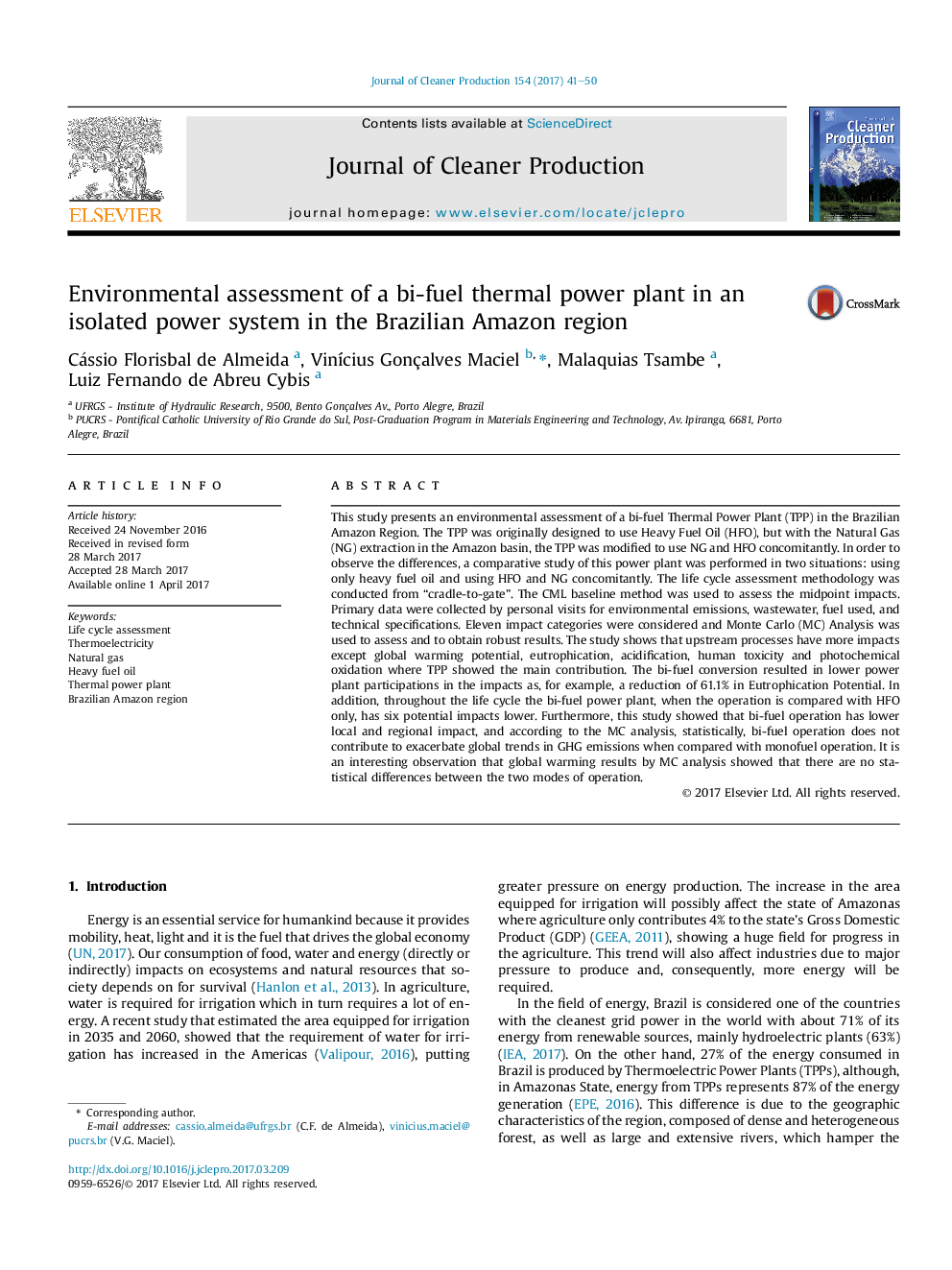| Article ID | Journal | Published Year | Pages | File Type |
|---|---|---|---|---|
| 5479718 | Journal of Cleaner Production | 2017 | 10 Pages |
Abstract
This study presents an environmental assessment of a bi-fuel Thermal Power Plant (TPP) in the Brazilian Amazon Region. The TPP was originally designed to use Heavy Fuel Oil (HFO), but with the Natural Gas (NG) extraction in the Amazon basin, the TPP was modified to use NG and HFO concomitantly. In order to observe the differences, a comparative study of this power plant was performed in two situations: using only heavy fuel oil and using HFO and NG concomitantly. The life cycle assessment methodology was conducted from “cradle-to-gate”. The CML baseline method was used to assess the midpoint impacts. Primary data were collected by personal visits for environmental emissions, wastewater, fuel used, and technical specifications. Eleven impact categories were considered and Monte Carlo (MC) Analysis was used to assess and to obtain robust results. The study shows that upstream processes have more impacts except global warming potential, eutrophication, acidification, human toxicity and photochemical oxidation where TPP showed the main contribution. The bi-fuel conversion resulted in lower power plant participations in the impacts as, for example, a reduction of 61.1% in Eutrophication Potential. In addition, throughout the life cycle the bi-fuel power plant, when the operation is compared with HFO only, has six potential impacts lower. Furthermore, this study showed that bi-fuel operation has lower local and regional impact, and according to the MC analysis, statistically, bi-fuel operation does not contribute to exacerbate global trends in GHG emissions when compared with monofuel operation. It is an interesting observation that global warming results by MC analysis showed that there are no statistical differences between the two modes of operation.
Keywords
Related Topics
Physical Sciences and Engineering
Energy
Renewable Energy, Sustainability and the Environment
Authors
Cássio Florisbal de Almeida, VinÃcius Gonçalves Maciel, Malaquias Tsambe, Luiz Fernando de Abreu Cybis,
